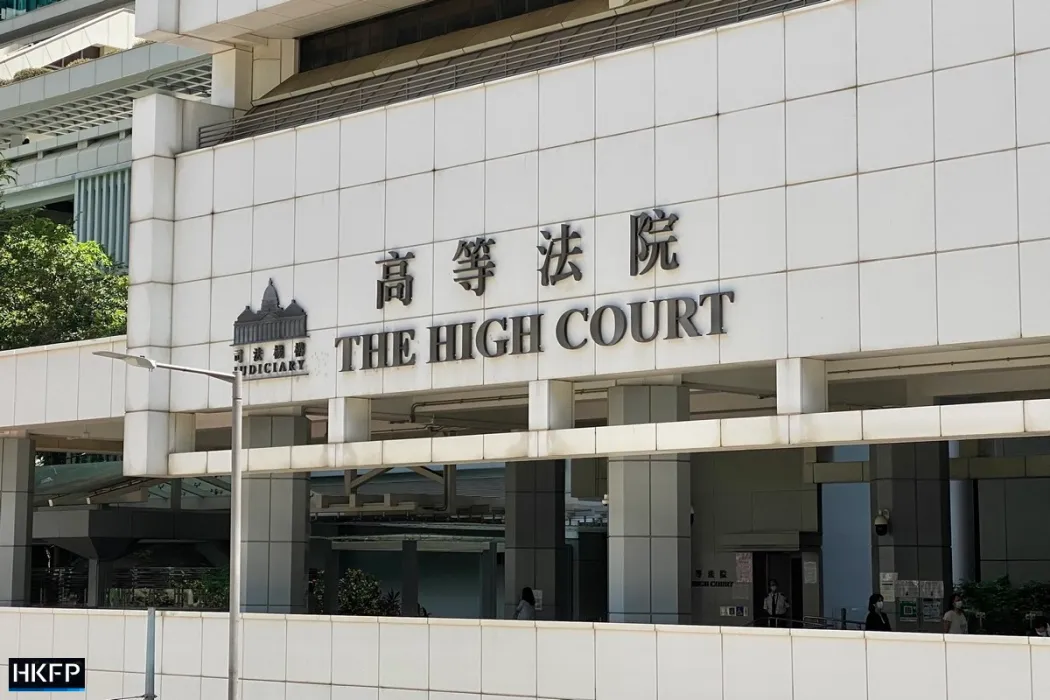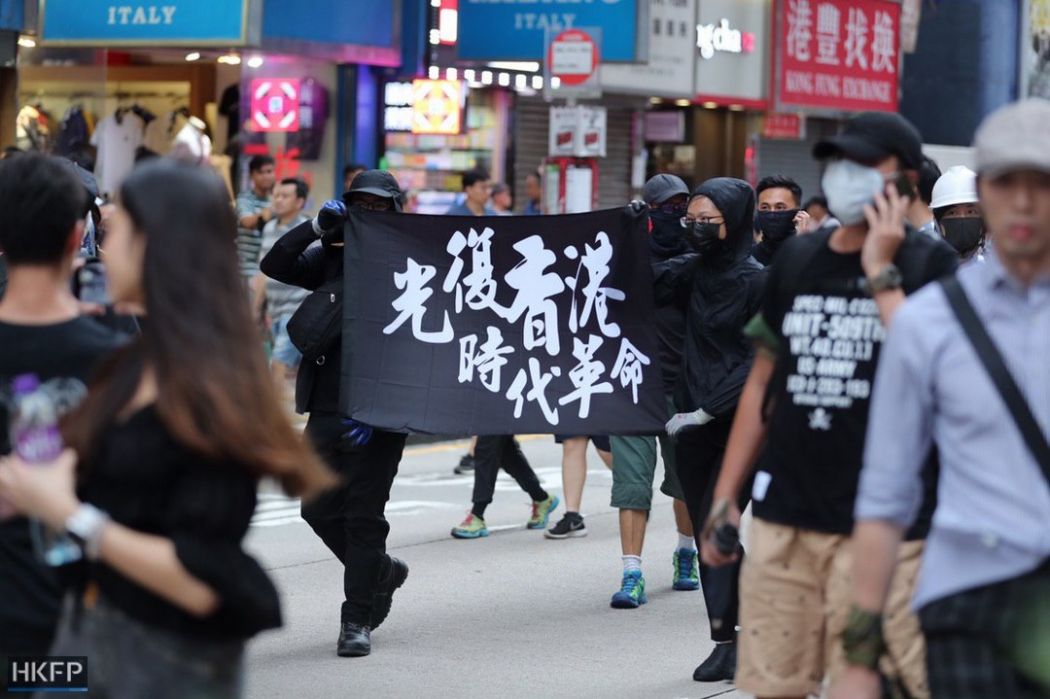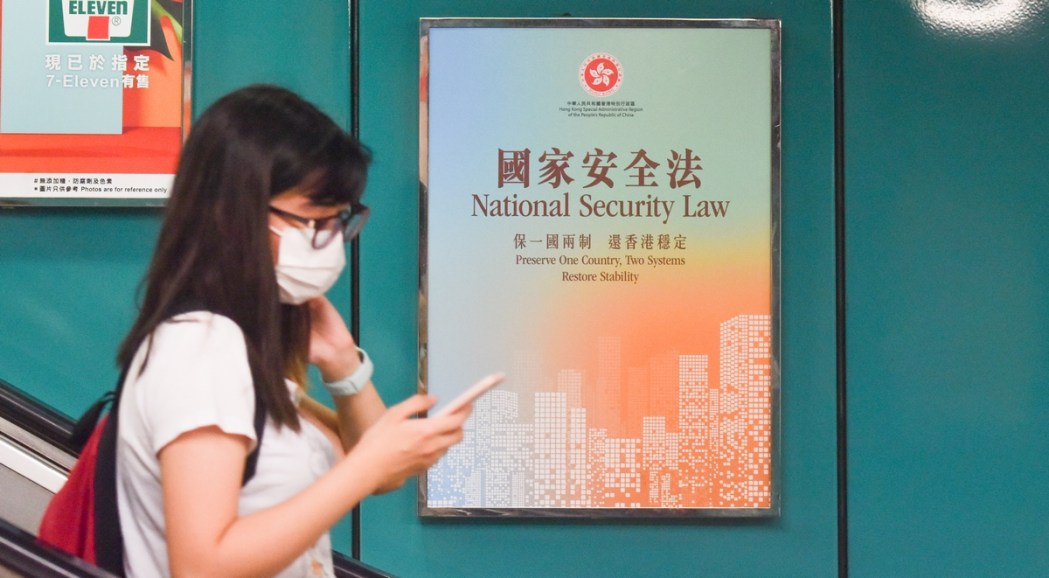The High Court in Hong Kong will hear closing statements for the city’s first-ever trial under the national security law next week, as all witnesses completed their testimonies on Thursday.
Hong Kong may soon see a landmark verdict for the case of Tong Ying-kit, 24, who pleaded not guilty to the charges of “incitement to secession” and “terrorist activities.” The two offences – outlawed under sweeping security legislation imposed by Beijing last June 30 – could see the activist jailed for life.

On the 14th day of the high-profile trial, Madam Justices Esther Toh and Anthea Pang and Justice Wilson Chan finished hearing statements given by defence expert witness and journalism academic Francis Lee, as well as Tong’s friend and former employer Jessica Kong.
The three judges – handpicked by Chief Executive Carrie Lam to handle national security cases – asked the prosecution and defence to prepare their closing arguments for next Tuesday.
Tong was arrested last July 1, after he allegedly rammed a motorcycle displaying a flag with the slogan “Liberate Hong Kong, revolution of our times” into three policemen during a protest in Wan Chai. The meaning of the controversial slogan – which the government said was banned last July for its “pro-independence and secessionist” connotations – became the main point of contention in the test case.
Correlation
During the re-examination of Lee on Thursday, the CUHK scholar was asked multiple times about the correlation between the slogan in question and Hong Kong independence. Most questions were linked to a study he conducted between June 2019 to July 2020 on around 25 million comments and posts shared on online discussion forum LIHKG.
Lee had looked for keywords such as “liberate Hong Kong,” “revolution of our times,” “five demands” and “Hong Kong independence” in the posts, in a bid to find out whether the number of times these phrases were mentioned bore an correlation.

“If people talked about Hong Kong independence on that day… then the underlying assumption is people would also talk about ‘Liberate Hong Kong,’ or ‘revolution of our times,'” Lee said.
The journalism professor said his study concluded that the correlation coefficient was “low,” which suggested that the terms “liberate Hong Kong” and “revolution of our times” had a “moderate” relationship with Hong Kong independence.
Representing the Department of Justice (DoJ), lead prosecutor Anthony Chau raised several examples of which forum users mentioned the slogan phrases as well as independence in their posts. But Lee dismissed the challenge and said those were “scattered” examples: “It’s not the dominant trend.”
Lee added that the findings from his various research studies showed there was “no substantial linkage” between the two, and he has not seen evidence to back up claims that the slogan could only carry pro-independence implications.

Historian Lau Chi-pang of Lingnan University, testified for the prosecution earlier that the words “Liberate Hong Kong, revolution of our times” were raised “necessarily for the objective of separating the HKSAR from the People’s Republic of China.” He also said the former part of slogan carried a view of seeing China as an “enemy,” while the latter part suggested a rejection of the local and central governance.
The acting deputy director of public prosecutions cast doubt on the reliability of Lee’s study on LIHKG, saying some of the forum entries might have been removed. In response, Lee said unless half of the 25 million comments he examined were deleted, it would not affect the outcome of his study.
Judge Chan asked if the data produced in a police study led by Senior Inspector Eddie Cheung was “statistically significant.” Cheung’s study followed the use of the slogan at protests and suggested it was associated with Hong Kong independence and other political agendas “hostile” to China and Hong Kong.
Lee answered by saying that the data gathered by police could not be used to calculate a correlation coefficient, as the force only reviewed 2,117 video clips that contained the use of the “Liberate Hong Kong” slogan. The appearance of the slogan therefore became a “constant,” he said.
“You can only have a correlation if two things vary,” Lee said. “[Social scientists] seldom just do co-occurrence, [therefore there is no] conventional standard.”
Last witness
Following the lunch break, Senior Counsel Clive Grossman for the defence called upon their third and last witness – Jessica Kong. Kong testified that she was the proprietor of a beverage shop known as Royal Tea and the defendant was once an employee at the store in Mong Kok.

She said Tong started visiting her shop in around November 2019, and they became friendly in February 2020 when he became a regular customer. Grossman sought to raise questions about Tong acting as a first-aider during the protests, but the judge panel interjected, saying the questions were “leading.”
The witness told the court that demonstrations often happened around her shop, and some people, who were injured with pepper spray and “blue liquid,” would take rest at the store.
The judges paused the trial briefly for a discussion behind their tables. Madam Justice Pang said they had concerns over Kong’s testimony, warning Grossman that his witness might say something “incriminating” and the court would need to issue a warning.
The senior counsel signalled he could continue with the questioning and asked how Tong “looked after” the injured people. Kong replied saying she was doing business and did not pay attention.
WhatsApp conversation
Kong told the court that, on the day of the offence, she had plans to visit a café in Causeway Bay with some colleagues and friends, including Tong. Grossman submitted a screen capture of a WhatsApp conversation between the defendant and the witness, and played an audio message of Tong asking for a location on Lockhart Road.

When the prosecution cross-examined Kong, senior prosecutor Ivan Cheung gave special focus to the conversation and alleged that “someone” had deleted messages. He first referred to a deleted text sent by Kong on July 2, 2020, which the witness accounted for by saying she “sent it wrongly.”
Cheung then pointed to a system message denoting “end-to-end encryption” – shown in police records – which he said would only appear if a WhatsApp user deleted the conversation.
Kong responded: “I totally don’t understand.”
Asked if she knew what Tong did before he was arrested, Kong said she only knew he was driving his motorcycle to Causeway Bay to meet the group. She also disagreed with the prosecution’s suggestion that she sent a photo showing a police roadblock near the West Harbour Crossing to warn Tong about the checkpoint.
The trial was adjourned to next Tuesday to allow time for the prosecution and defence to prepare concluding arguments. The court ordered both sides to submit bullet points of their written submissions on Monday.
Support HKFP | Policies & Ethics | Error/typo? | Contact Us | Newsletter | Transparency & Annual Report | Apps
Help safeguard press freedom & keep HKFP free for all readers by supporting our team
























